
Southern Accents is the sixth studio album by Tom Petty and the Heartbreakers, released on March 26, 1985, through MCA Records. The album's lead single, "Don't Come Around Here No More", co-written by Dave Stewart of Eurythmics, peaked at number 13 on the Billboard Hot 100. The song "Southern Accents" was later covered by Johnny Cash for his Unchained album in 1996.

Chicago VII is the sixth studio album by American rock band Chicago and was released in 1974. It is notable for being their first double album of new material since 1971's Chicago III, and remains their final studio release in that format. It features session percussionist Laudir de Oliveira who would become a full-fledged band member for the release of Chicago VIII the following year.
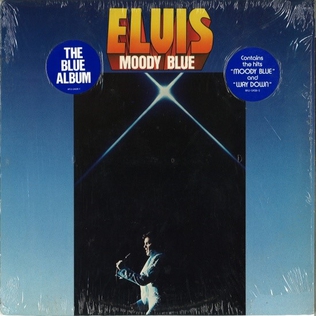
Moody Blue is the twenty-fourth and final studio album by American singer and musician Elvis Presley, released on July 19, 1977 by RCA Records, four weeks before his death. The album was a mixture of live and studio work, and included the four tracks from Presley's final studio recording sessions in October 1976 and two tracks left over from the previous Graceland session in February 1976. "Moody Blue" was a previously published hit song recorded at the earlier Graceland session and held over for this album. Also recorded at the February session was "She Thinks I Still Care". "Way Down" became a hit after Presley's death less than one month after this album's release. The album was certified Gold and Platinum on September 12, 1977, and 2× Platinum on March 27, 1992, by the RIAA.
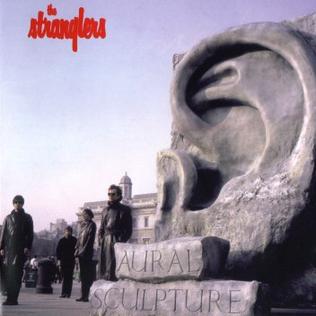
Aural Sculpture is the eighth studio album by the Stranglers, released in November 1984 by Epic Records. It was also the name given to a one-sided 7-inch single given free with a limited number of copies of their Feline album in 1983. The "Aural Sculpture Manifesto" on the 7" single was played before the Stranglers appeared on stage during concerts during both the 1983 "Feline" tour and the 1985 "Aural Sculpture" tour.

Hello Big Man is the 11th studio album by American singer-songwriter Carly Simon, released by Warner Bros. Records, on August 31, 1983.

Time, Love & Tenderness is the seventh studio album by American recording artist Michael Bolton. The album was released on April 23, 1991, by Columbia Records; it was produced by Walter Afanasieff and Michael Bolton. To date, the record has sold more than 16 million copies worldwide, becoming the best-selling album of his career.

"I'm Not in Love" is a song by British group 10cc, written by band members Eric Stewart and Graham Gouldman. It is known for its innovative and distinctive backing track, composed mostly of the band's multitracked vocals. Released in the UK in May 1975 as the second single from the band's third album, The Original Soundtrack, it became the second of the group's three number-one singles in the UK between 1973 and 1978, topping the UK Singles Chart for two weeks. "I'm Not in Love" became the band's breakthrough hit outside the United Kingdom, topping the charts in Canada and the Republic of Ireland as well as peaking within the top ten of the charts in several other countries, including Australia, Germany, New Zealand, Norway and the United States.

American Dream is the ninth album by the band Crosby, Stills & Nash, their fifth studio album and their second with Neil Young. Released in 1988 on Atlantic Records, it peaked at No. 16 on the Billboard 200 and has been certified platinum by the Recording Industry Association of America. To date, it is their final album of original material to receive either a gold or platinum citation by the RIAA. It is the highest-selling album by Neil Young in the 1980s. The album is dedicated to Jan Crosby, Anne Stills, Susan Nash and Pegi Young.
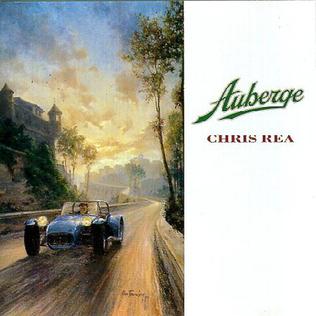
Auberge is the eleventh studio album by British singer-songwriter Chris Rea, released in 1991. The album, as well as the title song, is notable for its association with the Caterham Super Seven that Rea owned, which he called the "Blue Seven". The car appears on the album cover, illustrated in oil by renowned motoring artist Alan Fearnley. The album makes several references to the car over several tracks, as well on the video of the title song, and its cover illustration was used for its adverts. In 2005, Rea sold the car in an auction.
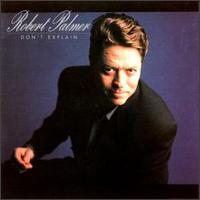
Don't Explain is the tenth solo studio album by English singer Robert Palmer, released in 1990. During the course of its 18 tracks, Palmer displays rock, R&B, jazz and Bahamian influences. Several classic songs are covered, as well. The album peaked at number 9 in the UK and number 88 in the US.

Wonderful Life is the debut album by English singer Black. Released in 1987, it peaked at #3 on the UK Albums Chart in September of that year.

Three Chord Opera is the twenty-fifth studio album by Neil Diamond, released in 2001. It marked the first album since 1974's Serenade to consist solely of original material written solely by Diamond, and the first album of any original songs since 1996's country-themed Tennessee Moon where Neil co-wrote all but one of the songs.
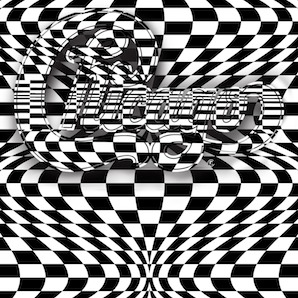
Chicago XXXVI: Now, sometimes stylized as "NOW" Chicago XXXVI or Now: Chicago XXXVI, is the twenty-fourth studio album, and thirty-sixth overall by Chicago. It was written and recorded in 2013–2014, and was released on July 4, 2014. Aside from the occasional few new tracks found in the band's many compilation and cover albums, Now is the band's first full album of new compositions since 2006's Chicago XXX,. This album has the first original Chicago credits for veteran musicians Walfredo Reyes, Jr. and Lou Pardini, since joining the band.

Uptown Special is the fourth studio album by English record producer Mark Ronson. The album was released on 13 January 2015 in the US and 19 January 2015 in the UK. It is his first album in nearly five years, following Record Collection (2010) and his first solo album since Version (2007). Ronson dedicated the album to the late Amy Winehouse.
La Booga Rooga was the second solo album by Andy Fairweather Low, and was released by A&M Records in 1975.

Dogs in the Traffic is the third studio album by Scottish band Love and Money, released by Fontana in 1991. The album reached No. 41 on the UK Albums Chart.

Are We Having Fun Yet? is the fourth studio album by English singer-songwriter Black, which was released in 1993.

Between Two Churches is the ninth studio album by English singer-songwriter Black, which was released by Nero Schwarz in 2005.

"Feel Like Change" is a song by English singer-songwriter Black, which was released by A&M in 1991 as the lead single from his third studio album Black. The song was written by Black and produced by Robin Millar. "Feel Like Change" reached number 56 in the UK Singles Chart and remained in the top 100 for two weeks.
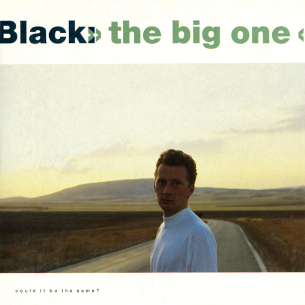
"The Big One" is a song by English singer-songwriter Black, which was released by A&M in 1988 as the lead single from his second studio album Comedy. The song was written by Black and produced by Dave "Dix" Dickie. "The Big One" reached number 54 in the UK Singles Chart and remained in the top 100 for four weeks.



















